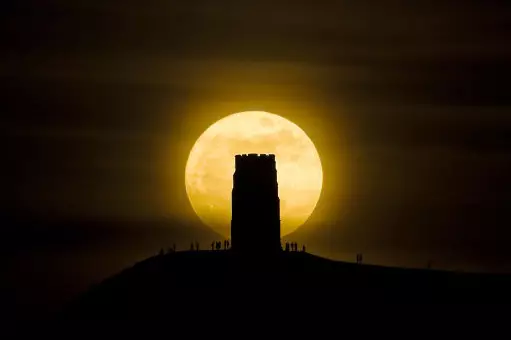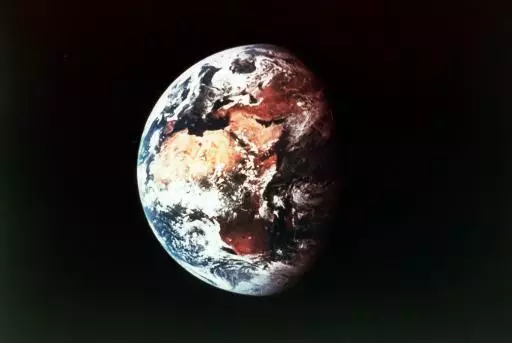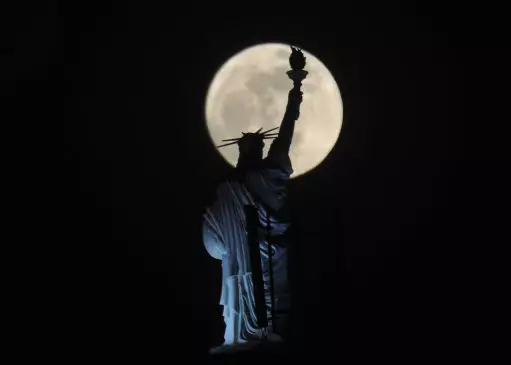
The year 2016 may have seen the untimely passing of some of the earth's greatest talents. But in 2017 it seems that increasingly we are being made aware of the dangers, often beyond our control, that lay in the vast vacuum of space.
Last month a Russian scientist warned that an asteroid, dubbed 2016 WF9, was destined to hit the earth in the coming weeks and that NASA had chosen to keep humanities grim fate a secret.
Now researchers have suggested that even if we avoid the millions of deaths that would result from an asteroid collision, the celestial body usually thought to be the earth's greatest ally could turn foe.
Advert
See footage of a 'super moon', showing our satellite at it's most largest and most ominous here...
Credit: NASA
Advert
Although the moon is currently spinning away from us at a rate of around 3.8 centimetres a year, experts believe that in the future this could change. This means that the earth and its only natural satellite could be on a collision course.
Were the moon and earth to collide, the energy released in the merging would melt the our planet into a magma ocean. Needless to say, none of us would survive.
The prediction comes from Dr Jason Barnes, a planetary scientist at the University of Idaho.

The earth as viewed from space. Credit: PA Images
Advert
Speaking to Forbes, Dr Barnes said: "The final end-state of tidal evolution in the Earth-moon system will indeed be the inspiral of the moon and its subsequent collision and accretion onto earth."
Thankfully there is a silver lining, as the catastrophic event is not forecast to occur for some 65 billion years.
The moon first formed around 4.5 billion years ago, and has been slowly moving away from Earth ever since. This is mainly because of the action of the earth's tides.

Credit: PA Images
Advert
The moon is kept in orbit by our planet's gravitational force. However, at the same time, the moon also exerts a gravitational force on our planet: this is what causes the movement of our oceans.
But Dr Barnes suggests that the Earth's rotation will one day slow down, until it is the same as the moon's orbital period. And that around that time the moon will stop moving outwards from the earth.
In six billion years time, the sun is also expected to go through a 'Red Giant phase'. This will occur when it runs out of nuclear fuel, and its core becomes a burned-out remnant white dwarf.
Advert
The outer layers of the sun will then expand outwards beyond Earth's orbit, sapping energy from the earth-moon system.

Credit: PA Images
This would cause the moon to start creeping towards the Earth.
"Eventually, it would get so close that it would spiral inward, dissipating its orbital kinetic energy in a spectacular collision and merger with the Earth," said Dr Barnes.
It may be billions of years away, but nevertheless such a fate doesn't bare thinking about.
Featured Image Credit: PA Images